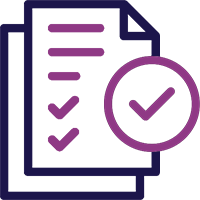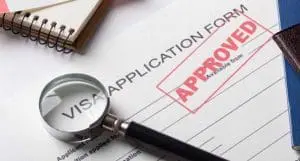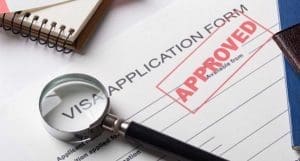UK Sponsor Licence for Aviation Businesses
If you’re a UK-based business or organisation working in the aviation industry, you may have to apply for a sponsor licence in order to hire staff from overseas.
IAS’ team of business immigration specialists can help you with your international hiring processes today. Reach out to us on +44 (0)333 414 9244 or contact us online for advice.
Read our 1001 reviews
Request a call back from our immigration experts
Benefits of Choosing IAS for Your Sponsor Licence Needs
Our dedicated UK corporate immigration lawyers deliver our services through a comprehensive and personalised approach suited to fit each business client that we work with.
We can assist you in getting a UK Sponsor Licence, generating a certificate of sponsorship, and applying for a work visa for your employee. Whether this is your first application, your initial application was refused, or you were found to not be compliant in the past, we can help.
With a successful track record, IAS eases the process for you so you can focus on other parts of your business. Here are more things you enjoy by working with us:

Our lawyers will assess your Sponsor Licence case 1-1 to understand its unique aspects.



We provide customised guidance for Sponsor Licence applications to increase chances of approval.



We assist with maintaining compliance with the UK government’s rules for employing overseas workers.



Our team offers detailed assistance in making any critical changes to the sponsor management system.
Services we Provide
Overview of the UK Aviation Industry and Hiring Foreign Workers
The UK has a significant and expansive aviation sector, with its aviation network being ranked the third-largest in the world with a turnover of approximately £60 billion.
This notably includes Heathrow Airport, which is the fourth-busiest airport in the world by passenger traffic, and International Airlines Group, which has its corporate headquarters in London and is the sixth-biggest public airline company in the world.
British Airways is also ranked by Forbes as the airline with the sixth-highest brand value in the world, with an estimated value at over $3.175 billion.
The UK’s aviation industry also directly or indirectly supports over an estimated one million jobs. These roles are highly diverse and are spread across a number of different roles and professions, including pilots, cabin crew, air traffic controllers, logistics, supply chain, security, technicians and air transport operatives.
Given the huge scope of the aviation industry in the UK and the international nature of much of the work within the sector, it’s natural that aviation businesses will often strive for a highly diverse workforce from a range of different backgrounds.
This will often involve hiring talent from outside of the UK using a sponsor licence, either to sponsor employees to come and work from the UK, or on aircraft.
However, it is important to note that UK aviation businesses may not always need to apply for a sponsor licence to hire foreign employees, nor grant certificates of sponsorship to foreign workers.

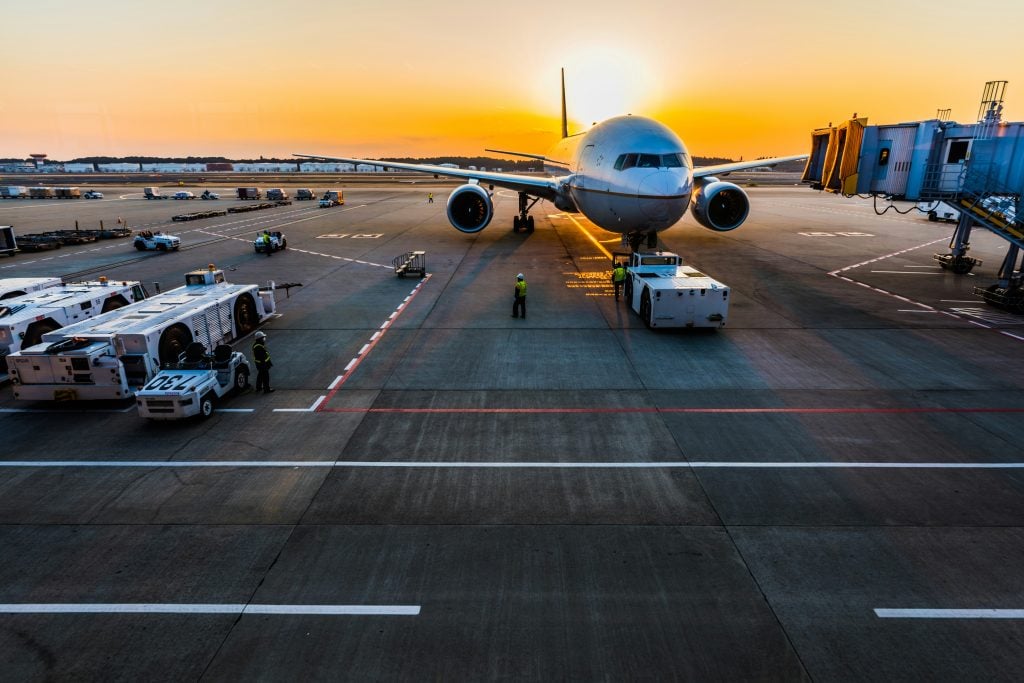
When Do UK Aviation Companies Need a Sponsor Licence?
According to Home Office guidance, sponsor licences are mostly required for any business based and registered in the UK who wishes to hire foreign workers from outside of the UK.
The foreign workers should not be a “settled worker” (i.e. have British or Irish citizenship, indefinite leave to remain, settled status, etc) or have any other general permission to work in the UK, such as through being a dependent of a Skilled Worker visa holder or a student working part-time.
This means that broadly speaking, anyone from outside of the UK who does not currently have permission to work in the UK will need to be sponsored if they wish to come and live and work in the UK for a UK-based aviation company.
In regards to aviation roles, this will cover the vast majority of jobs available in the UK, from those working in airports such as ground crew, maintenance and logistics, as well as corporate jobs in UK aviation offices.
However, this notably does not extend to include employees of UK-based aviation companies that will not be residing in the UK and will only be visiting the UK for short periods of time for work purposes – i.e. as part of aircrew on arriving and departing planes.
What Exceptions Apply to Aircrew Employed by UK Airlines?
Generally speaking, aircrew staff of UK-based airlines will not require a work visa or a certificate of sponsorship from their UK-based employer if all of the following apply:
- They will be travelling into the UK as part of operating crew on an aircraft
- They will be leaving the UK, as members of crew, on the same or another aircraft within seven days
- They hold pilots’ licences, cabin crew ID or valid crew members’ certificates and passports
- Their primary residence will be outside of the UK and they will not be spending any more time in the UK other than the seven day grace period allows, unless they specifically request permission to do so from the airline employees (ALE) section at Heathrow Terminal 3 or otherwise can benefit from certain concessionary agreements that allow them to stay for longer
In other words, the same rules generally apply in this situation as when a UK-based company wishes to hire remote workers living overseas. As the worker in question will not be living in the UK to work for their employer, the normal visa or sponsorship requirements will not usually apply.
However, aircrew must be careful in adhering to the rules set out in the guidance above as to not violate immigration law.
Additionally, note that some aircrew may still be subject to entry clearance restrictions when arriving in the UK if they have at any time been refused permission to enter and have not since been given permission to enter or remain, or if they have a deportation order in force against them.
In all other circumstances, foreign employees wishing to live and work in the UK for a UK-based aviation company will require a certificate of sponsorship from a licensed sponsor.
Which Aviation Roles Can Be Filled By Foreign Employees?
Aviation companies looking to hire foreign workers will normally hire employees applying for Skilled Worker visas, which is the UK’s general work visa for skilled employees.
As part of the eligibility criteria for a Skilled Worker visa, potential applicants must have a valid job offer in a role with a valid occupation code.
There are numerous occupation codes that can be categorised under aviation or its related sectors, some of which (alongside their accompanying roles) are listed in the following table. Note that this is not a complete list and there are a variety of other roles that are also eligible under visa routes that can be employed within the aviation sector.
| Occupation Code | Job Type | Related Job Titles |
| 1140 | Directors in logistics, warehousing and transport | Airport director Head of logistics Owner (delivery service) Supply chain director |
| 1241 | Managers in transport and distribution | Distribution service manager Fleet manager Operations manager (transport) Shipping manager Transport manager |
| 1243 | Managers in logistics | Logistics manager Supply chain manager |
| 3511 | Aircraft pilots and air traffic controllers | Airline pilot Air traffic controller First officer (airlines) Flight engineer Flight planner Flying instructor Helicopter pilot |
| 4134 | Transport and distribution clerks and assistants | Cargo agent Export clerk Freight administrator Logistics coordinator Shipping clerk Transport clerk |
| 5234 | Aircraft maintenance and related trades | Aeronautical engineer Aircraft electrician Aircraft engineer Aircraft fitter Aircraft mechanic Maintenance engineer (aircraft) |
| 6213 | Air travel assistants | Air hostess Cabin crew Customer service agent (travel) Flight attendant Passenger service agent |
| 8233 | Air transport operatives | Aircraft dispatcher Baggage handler Cargo handler (airport) Controller, airfield Ground staff (airport) Ramp agent Refueller (airport) |
Sponsor Licence Eligibility Criteria for Aviation Businesses
In order to be eligible for a sponsor licence to hire foreign employees, aviation businesses in the UK must meet some basic eligibility requirements.
These include the following. Businesses must:
- Not have had a sponsor licence revoked in the past 12 months
- Not have unspent criminal convictions for immigration offences or certain other crimes such as fraud or money laundering
- Ensure that prospective employees comply with all minimum wage and time regulations, as well as ensuring that they meet other relevant conditions for their visa
- For Skilled Worker visas, employees must be paid at least £41,700 per year or the going rate of their job, whichever is higher
- Have appropriate systems in place to hire and monitor sponsored workers
- Appoint suitably qualified people to manage sponsorship through the sponsor management system (SMS). These include the following:
- Authorising officer – a senior role who is responsible for the actions of staff and representatives who use the SMS
- Key contact – the main point of contact with UK Visas and Immigration (UKVI)
- Level 1 user – responsible for all day-to-day management of your sponsor licence using the SMS
You must also commit to ongoing checks and responsibilities as a sponsor of foreign employees.

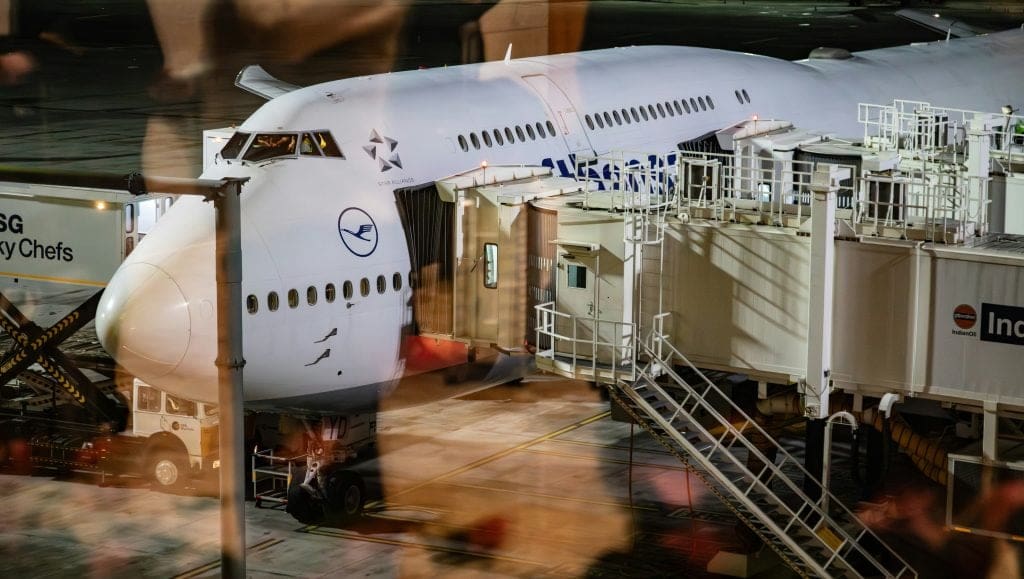
How to Apply for a Sponsor Licence: A Step-By-Step Process
Aviation companies in the UK must carefully follow a step-by-step process in order to successfully become a licenced sponsor.
These steps are as follows.
Step 1: Assessment of Labour Needs and Eligibility
The first step that any business should take when hiring foreign workers is to assess the need for foreign talent and the businesses’ suitability for taking on a sponsorship licence.
For aviation companies, this need may arise from a lack of local talent to fill key vacancies, or a desire to expand and diversify the workforce with overseas talent. This may be especially pertinent if your business regularly flies to, does business with, or is otherwise heavily involved in international trade or travel.
You should also carefully assess your business’ suitability and capacity for sponsorship. You must commit to adhering to all necessary rules, guidelines and responsibilities associated with being a sponsor, including appointing staff to fill key roles to use and manage the SMS.
You should also determine which type of licence you will be applying for: either a Worker licence or a Temporary licence, or both.
Step 2: Assemble Supporting Documents
Arguably the most complex and demanding step of the process, you must ensure that you have assembled all necessary supporting documents for your application before starting to fill in the application itself.
The full range of documents you will need are wide-reaching and varied, and will differ based on the nature of your business. But typically, they may include (but not be limited to) thing such as the following:
- Latest audited annual accounts
- Your liability insurance certificate
- Corporate bank account statements
- Proof of ownership of, or a commercial lease for, physical business premises
- A hierarchy chart of high-level senior staff
- A letter explaining why you are applying for a sponsor licence
- Details of your business operating hours, operations and opening hours
- Details of the role being sponsored, such as the salary, job duties and role description
Step 3: Complete and Submit the Online Application
Once you have completed all of the above, you should then be ready to fill in the online application for a sponsor licence. The application can be found on the gov.uk website.
To complete the application, you will have to create an account on the Home Office’s SMS.
You should ensure that you complete the application as accurately and truthfully as possible, as not doing so may negatively impact your application’s chances of being approved.
Once your application is completed, you may also be asked to send in a submission sheet and your supporting documents.
You will also be asked to pay the application fee at this point. More details about sponsor licence application fees are detailed after this step-by-step guide.
Step 4: Prepare for a Compliance Visit
As part of the application review process, your business may be subject to a compliance visit from UKVI to verify that the information in your application is accurate and that your business is suitable for sponsorship.
This will typically be a pre-planned visit where an official will interview key staff, check your HR systems and assess your organisation’s capacity to take on sponsorship roles.
If you will undergo a check, it’s important to prepare diligently by ensuring that your key systems, documents and staff are properly organised to ensure a smooth check. The UKVI official may also interview you or your staff to ensure that the organisation as a whole are aware of their ongoing sponsorship responsibilities.
Step 5: Receive Your Decision
After all of the above is completed, you will receive a decision from the Home Office, typically within 8 weeks.
If your application for a sponsor licence is approved, you will be added to the list of eligible sponsors in the UK and be given an A-rating. You will be able to assign certificates of sponsorship to foreign employees, who will then be able to apply for work visas to travel to the UK and start employment.
If your application for a sponsor licence is refused, you will be informed of the reasons why. You may be able to apply for a review of the refusal, but only if you think that there was an oversight or error in the application review process, such as if a key piece of supporting documentation was overlooked.
What Are the Sponsor Licence Fees for Aviation Companies?
The fees you may have to pay when sponsoring foreign workers as an aviation company are as follows:
Sponsor Licence Application Fees
The fees for the sponsor licence application itself are as follows:
| Type of Licence | Fee for small or charitable sponsors | Fee for medium or large sponsors |
| Worker | £574 | £1,579 |
| Temporary Worker | £574 | £574 |
| Worker and Temporary Worker | £574 | £1,579 |
| Add a Worker licence to an existing Temporary Worker licence | No fee | £1,005 |
| Add a Temporary Worker licence to an existing Worker licence | No fee | No fee |
Your aviation business will be classed as a small or charitable sponsor if you’re a registered charity or if at least two of the following apply to you:
- Your annual turnover is £10.2 million or less
- Your total assets are worth £5.1 million or less
- You have 50 employees or fewer
Immigration Skills Charge
The immigration skills charge is a fee that must be paid when sponsoring employees coming to work in the UK for 6 months or more, or for any foreign employees applying for sponsorship from within the UK.
The fees are as follows:
| Period | Small or charitable sponsors | Medium or large sponsors |
| First 12 months | £364 | £1000 |
| Each additional 6 months | £182 | £500 |
Certificate of Sponsorship Fees
Aviation businesses must also pay a fee every time they assign a certificate of sponsorship to a foreign employee.
These fees are as follows:
| Type of Licence | Cost per Certificate |
| Worker | £525 |
| Temporary Worker | £55 |
Should Aviation Businesses Acquire Sponsor Licences?
The process of obtaining a sponsor licence in the UK can be fairly lengthy and complex, with several key eligibility criteria and ongoing responsibilities that businesses must adhere to.
However, the benefits of obtaining a sponsor licence can be significant, particularly within the aviation sector.
Given the requirement for aviation organisations to have an internationally-focused approach to their business strategy and operations, it can be significantly beneficial to have an equally diverse and international workforce to help execute this. This is particularly the case for businesses who specialise in one or a few key international markets, where having employees from those parts of the world can deliver key insights and help bridge language and cultural barriers.
On a more practical level, it may also be a requirement for aircrew to speak two or more languages depending on where the airline operates, which may require considering applications from outside of the UK.
Aviation businesses should also consider the benefits of accessing a far wider pool of talent than they would normally have access to, encouraging a more diverse range of skills, qualifications and perspectives from within the workforce. In an industry that is as agile, fast-paced and competitive as the aviation industry, this may be an essential consideration for companies.
Finally, successfully obtaining and maintaining a valid sponsor licence in the UK can be beneficial for an organisation’s overall reputation and brand. Continually maintaining a high standard of systems management, organisation and HR can reflect favourably on the business for key stakeholders and clients, potentially furthering your business’ scope as a market leader.


How Can IAS Help?
If you’re an aviation company in the UK who has recognised the value of hiring foreign talent for your workforce, IAS can help you obtain a sponsor licence.
We are a team of expert and professional business immigration advisers with experience working with a variety of different industries in the UK, including aviation. Whether you need professional advice on sponsor licence compliance and duties, ongoing management of the SMS or need help with the legalities of hiring foreign workers, we can help.
We offer complete and comprehensive support for businesses looking to fulfil their potential by hiring international talent. Our team are on hand now to help advise and support you with your business immigration needs.
For immediate help and support for your business or organisation, reach out to us on +44 (0)333 414 9244 or contact us online today.
Table of Contents
Table of Contents will appear here.Legal Disclaimer
The information provided is for general informational purposes only and does not constitute legal advice. While we make every effort to ensure accuracy, the law may change, and the information may not reflect the most current legal developments. No warranty is given regarding the accuracy or completeness of the information, and we do not accept liability in such cases. We recommend consulting with a qualified lawyer at Immigration Advice Service before making any decisions based on the content provided.
What our clients are saying
How our UK Immigration Lawyers can help
At the Immigration Advice Service our lawyers specialise in a wide range of UK visas, nationality and asylum applications and have represented clients in various successful complex and high-profile cases.








